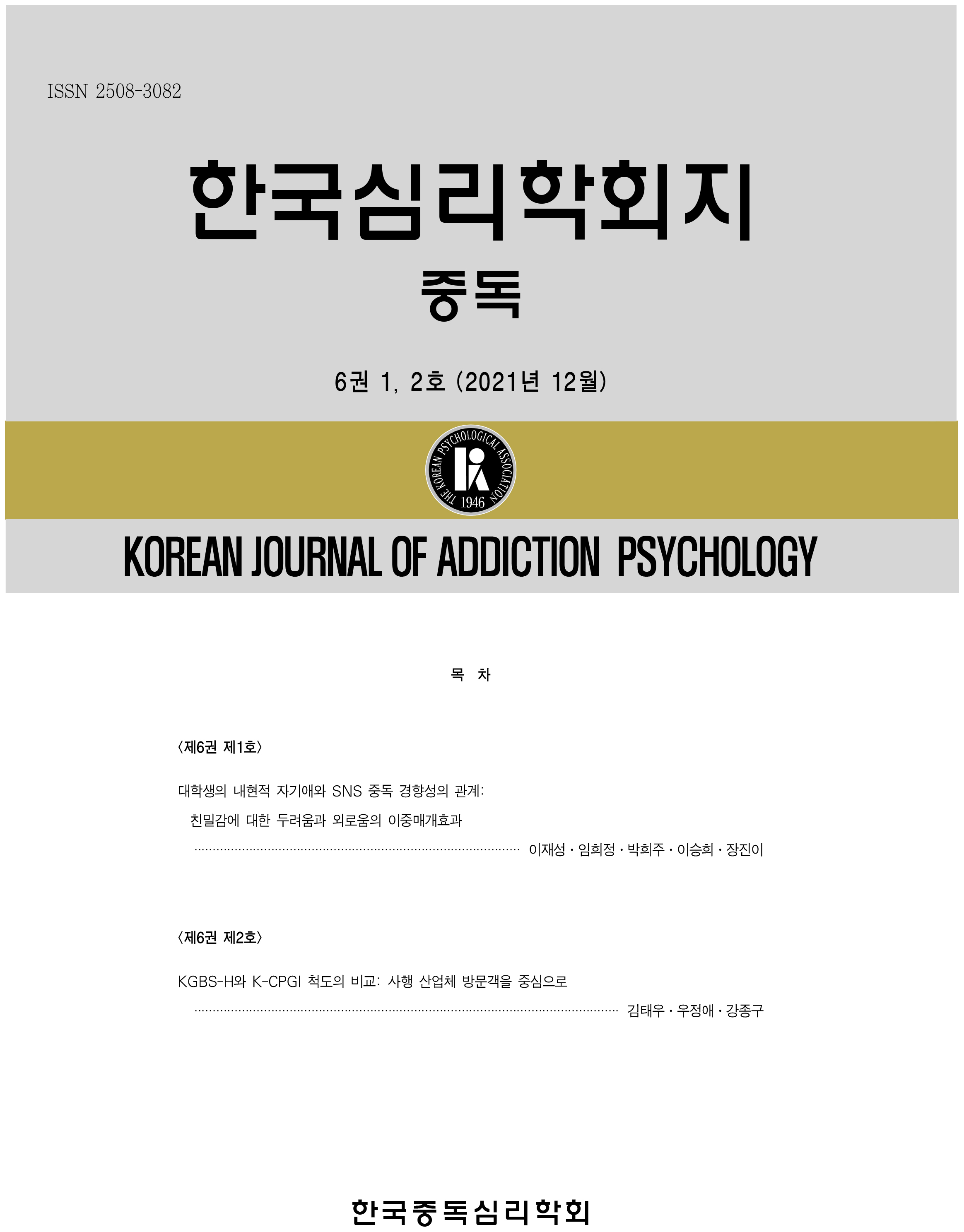Korean Journal of Addiction Psychology
- P-ISSN2508-3082
- E-ISSN3091-6054
 ISSN : 2508-3082
ISSN : 2508-3082
Development of the Sex Addiction Scale based on DSM-5 criteria
Yena Kim (Korea Baptist Theological University)

Sun Jung Kwon (Korea Baptist Theological University)
Abstract
In this study, we developed the Sex Addiction Scale(SAS) based on Substance Use Disorder criteria, Gambling Disorder criteria, and Internet Gaming Disorder criteria in the DSM-5. There are five criteria('Withdrawal', 'Tolerance', 'Preoccupation', 'Unsuccessful efforts to control', 'Jeopardizing relationship/ job/education') that are common criteria to three existing addiction-related disorders and three criteria('Use for escape or relieve from negative mood', 'Loss of interests/hobbies/entertainment', 'Continued use despite negative results') that are common criteria to at least two disorders. In addition, we included 'craving' criterion in Substance use disorder, and finally developed SAS consisting of 10 items in 9 criteria. SAS was developed with one item per criterion, but only the criterion of "Jeopardizing relationship, job, or education" was developed as two items. Using an online panel of Internet researchers, we collected data on 712 adult males who answered that they used their sexual object more than two or three times a month in order to solve their sexual craving over the past year. As a result of the analysis, the Sex Addiction Scale showed a stable one-factor structure and high reliability(Cronbach's α=.93), and there was a significant positive correlation with the frequency of 'Sexual behavior frequency scale', 'Irrational sexual beliefs scale', and 'Online addiction scale'. This suggests that this scale can reliably and adequately assess the level of sex addiction. The main results of this study and implications are discussed in detail in the discussion.
- keywords
- Sex addiction, Scale Development, DSM-5, Reliability, Validity
- Submission Date
- 2018-05-07
- Revised Date
- Accepted Date
- 2018-06-10
- 304Downloaded
- 475Viewed
- 0KCI Citations
- 0WOS Citations
